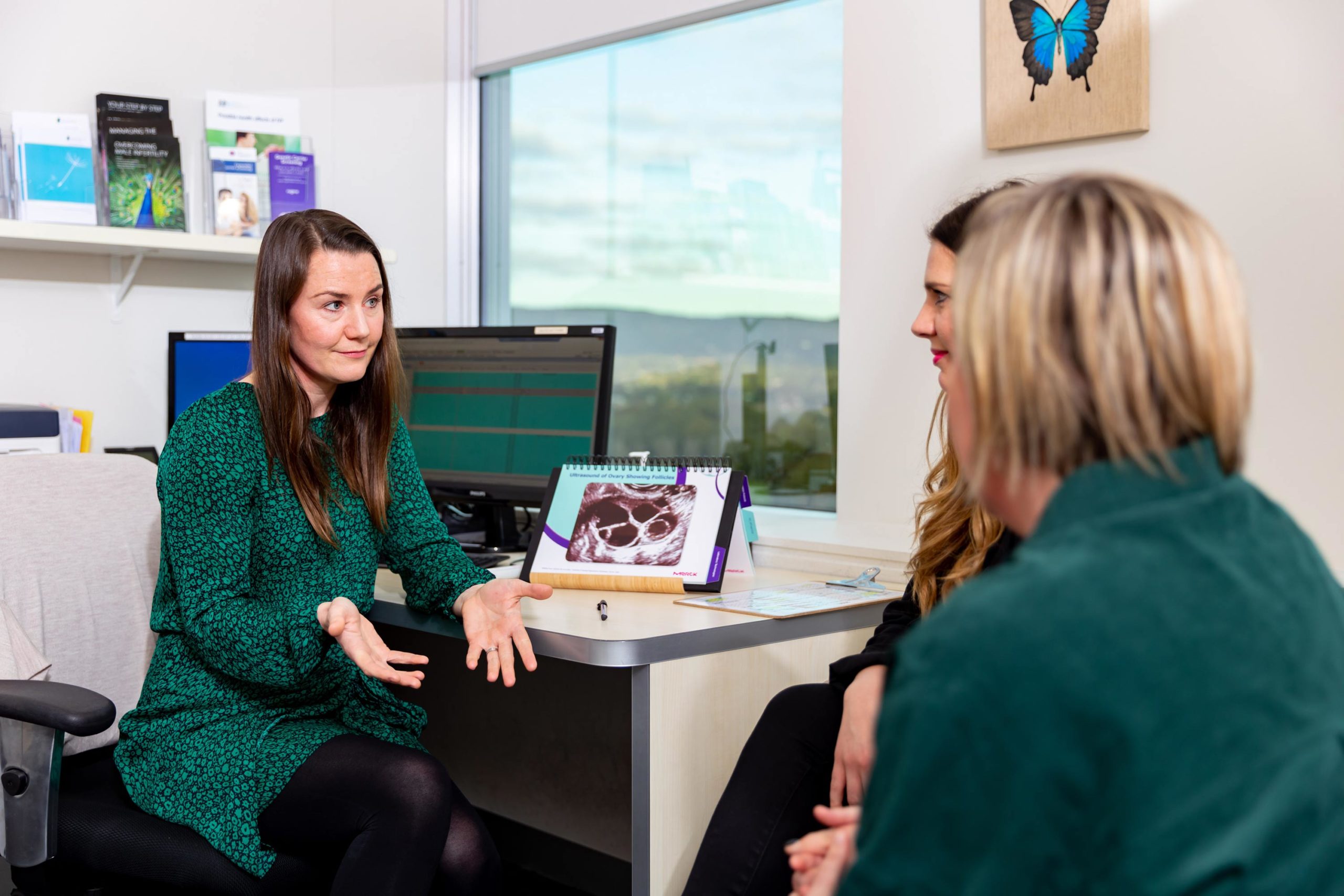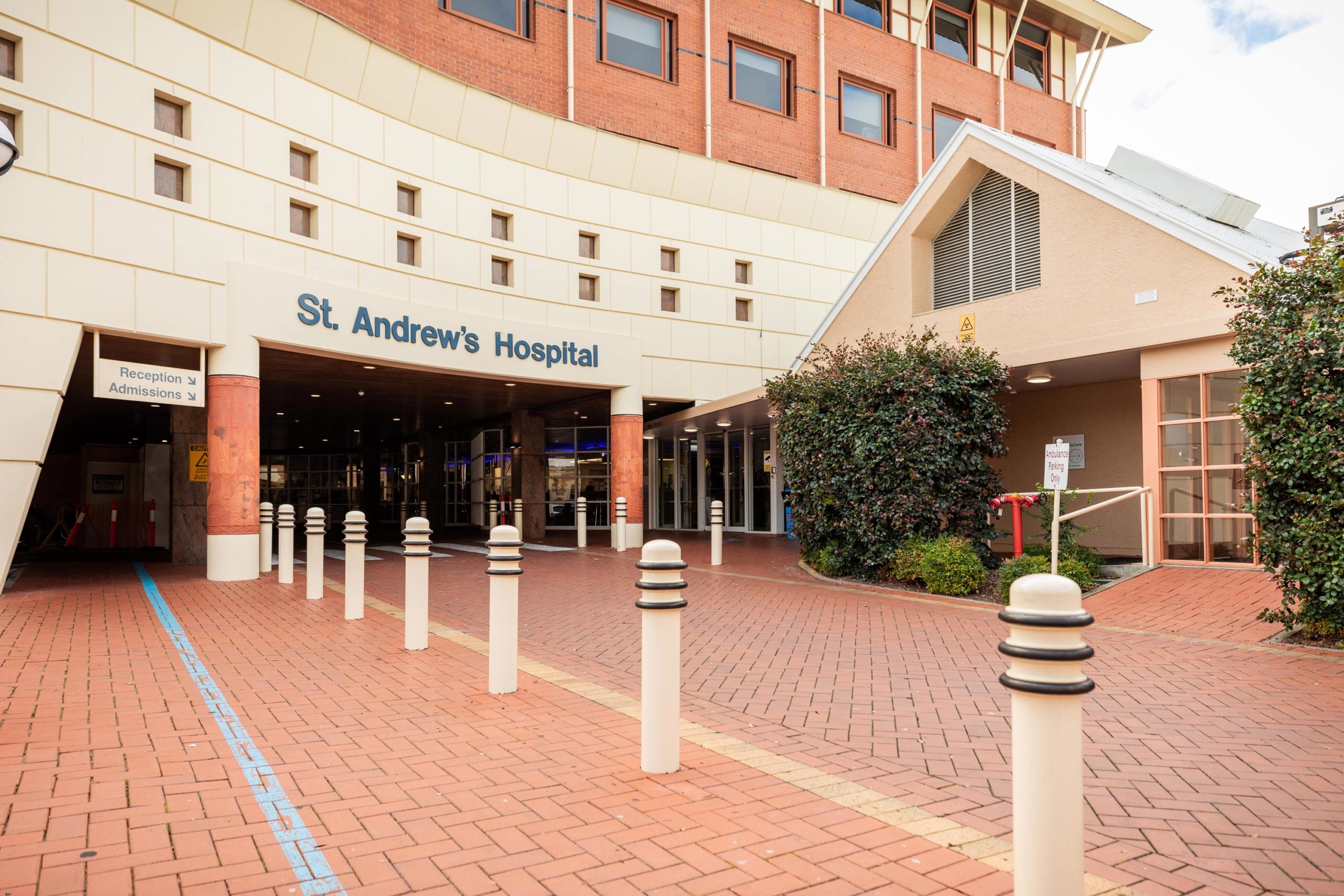Getting started
At Fertility SA we are focussed on giving you the best chance of conceiving a healthy baby. The start always involves meeting one of our expert fertility specialists where we learn more about your situation and work out the next steps.
-
Optimising health in the preconception period is an increasingly important contributing factor to improving the chances of natural conception. Lifestyle choices can make a big difference and considering both partner’s current lifestyles and making even small adjustments can drastically improve your chances of a healthy pregnancy.
-
Evidence shows that the toxins in cigarettes can have an effect on both sperm and egg quality. We encourage you to reduce the number of cigarettes a day and work towards stopping completely to improve your chances of getting pregnant. Besmokefree.com.au
-
Regular exercise is good for both our physical and emotional wellbeing. One to five hours of week of moderate exercise like walking, yoga, or household activities (like gardening or cleaning) can improve fertility in all women along with support in stress management. Both extreme amounts of exercise and inactivity can be detrimental to trying to conceive.
-
Caffeine is a stimulant found not only in coffee, but is present in tea, energy drinks, some soft drinks and event chocolate. Studies have indicated that those who consume large amounts of caffeine may take longer to conceive or have a higher risk of miscarriage. Both men and women should ideally aim for less than 200mg of caffeine a day, which is equivalent to 1-2 coffees or 2-3 cups of tea.
-
Heavy drinking which is defined as 5 drinks a day for men and 4 drinks a day for women can increase the time it takes to get pregnant and can affect a developing baby’s health. Heavy drinking can reduce male sex drive, reduce the quality of sperm and cause impotence. For women planning to become pregnant, abstaining from alcohol is the safest option. Yourfertility.org.au
-
Exposure to toxins and chemicals can have a detrimental impact particularly on sperm quality. For example, studies have shown that exposure to crop chemicals has a negative impact on sperm quality, but also that reducing or eliminating the exposure allows the quality to return. Anyone who is exposed to chemicals for their work should consider alternatives when they are trying to conceive.
-
Getting quality sleep of 6-8 hours every night is important, as is the ability to manage stress. Both of these things can be difficult if you are trying for a baby and it’s not happening as quickly as you had hoped. Look for ways to manage your stress and seek professional help if your stress levels are impacting your relationship or work.
-
Eating well and ensuring a balanced diet with plenty of fruit and vegetables is helpful for conception. Trying to be a healthy weight is also important, especially for women. If you are underweight, this can have an impact on the regularity of ovulation. Studies have also shown that even losing 5kg for women who are overweight can have a positive impact on conception.
-
Fertility declines for both men and women as we age. Although there are individual variations, women younger than 35 and men younger than 40 have a better chance of having a child than people who are older. This is true for natural pregnancies and for pregnancies conceived through assisted reproductive treatments such as IVF (in-vitro fertilisation).
-
To maximise the chance of conceiving naturally, understanding the fertility cycle and timing intercourse are important first steps. Understanding your cycle and when you ovulate can support timing intercourse to maximise conception. Getting pregnant is dramatically increased if you have sex on the day of ovulation or in the two days prior to ovulation.
-
For many men and women, the journey to parenthood does not always happen as quickly as expected. In fact, as many as one in six couples experience difficulty conceiving.
At Fertility SA we are focused on helping you make the best decision based on your individual circumstance, and are here to guide you through the steps from diagnosis to treatment, no matter where your fertility journey takes you. There are many factors that can affect fertility, with some of the more common reasons being:
-
This refers to disorders in which an egg is not regularly released from the ovary. Polycystic ovary syndrome (PCOS) is a common hormonal condition that affects around 12-18% of women in their childbearing years. Women with PCOS commonly do not ovulate naturally.
-
This includes blockage or damage to the fallopian tubes caused by various factors such as previous surgery or infection.
-
Endometriosis can be a painful condition which occurs when tissue that lines the uterus, the endometrium, grows outside of the uterus. It most commonly involves your pelvis, your ovaries and fallopian tubes.
During menstruation, the displaced tissue acts as it normally would, thickens, breaks down and bleeds, but because it has no way to exit the body it becomes trapped. When endometriosis involves the ovaries, cysts called endometriomas may form and become irritated and inflamed, eventually developing scar tissue and adhesions.
During menstruation, the pain associated with endometriosis can be incredibly severe and it can also contribute to infertility issues.
Approximately 20% of patients at Fertility SA have a medical diagnosis of endometriosis, and a number of our specialists are experts in the diagnosis and treatment of this condition.
Diagnostic laparoscopy is the procedure used to diagnose endometriosis and determine the severity and best treatment course.
For some patients the condition can be managed with medication to assist with conception. Others may elect for surgery to remove the endometrial tissue, giving the best chance of conception.
-
This refers to women having a reduced number of eggs available in their ovaries. In women less than 40 years of age this may result in premature ovarian insufficiency/premature menopause.
-
Abnormalities can be present in the uterus that can affect fertility.
-
Obesity, thyroid or other endocrine problems, general or metabolic disorders can all affect fertility.
-
Reduced or absent sperm as well as abnormal movement or shape can decrease the chance of falling pregnant.
-
Unexplained infertility accounts for approximately 10% of all cases of infertility. When a couple has been trying to conceive for at least 12 months with no success and all conventional tests have come back as normal.
-
Polycystic Ovary Syndrome (PCOS) is a condition that affects a woman’s hormone levels. Women with PCOS produce higher-than-normal amounts of male hormones (testosterone). This hormone imbalance contributes to irregular menstrual cycles and makes it harder for them to get pregnant.
PCOS also causes hair growth on the face and body, and baldness. And it can contribute to long-term health problems like diabetes and heart disease.
PCOS is known to have an impact on fertility. While some women with PCOS will be able to conceive naturally, some will require fertility assistance. Ovulation induction and IVF are the most common treatments for women experiencing fertility issues with a PCOS diagnosis. In some cases, lifestyle management and maintaining a healthy weight can also have a positive impact on the chances to conceive.
Fertility SA is recognised as an NHMRC PCOS Centre of Excellence and has specialists who are experts in the treatment of patients with this condition
-
Sperm retrieval is a surgical day procedure carried out under local anaesthetic. It collects sperm from the vas deferens, epididymis or testis. This procedure may be recommended for:
Men with an absence of sperm in their ejaculate. This may occur if there is a blockage, which prevents sperm entering the semen, if there is a congenital blockage in the vas deferens, a previous vasectomy or failed vasectomy reversal.
Men with an absence of sperm from their ejaculate as a result of a failure in sperm production by the testes.
Infertility caused by failure of ejaculation.
Although men may feel discomfort and tenderness after this surgical procedure and limit physical activity for 48 hours, it is considered a very safe option for collecting viable sperm.

First steps
At Fertility SA your first appointment will be with an expert fertility specialist. If it is taking you longer to fall pregnant than expected, our specialists are able to discuss each unique situation and making an appointment is the next step.
If you have been trying to get pregnant and you are under 35 and without success for 12 months, we recommend coming to see Fertility SA. For women over 35, we recommend only waiting 6 months.
There are multiple causes of infertility for both men and women and here at Fertility SA our specialists will work with you to give you the best possible chance of conceiving a healthy baby.
Our clinics
Fertility SA operates from two clinics in Adelaide.
Our consulting rooms at 431 King William Road, Adelaide, are where we meet patients on a regular basis and carry out some services such as ultrasound scanning.
We carry out all surgical procedures at nearby St Andrew’s Hospital. This is also where our embryology laboratory is based.
Throughout your treatment our team of specialists and nurses will be clear about where you need to go for various treatments.

